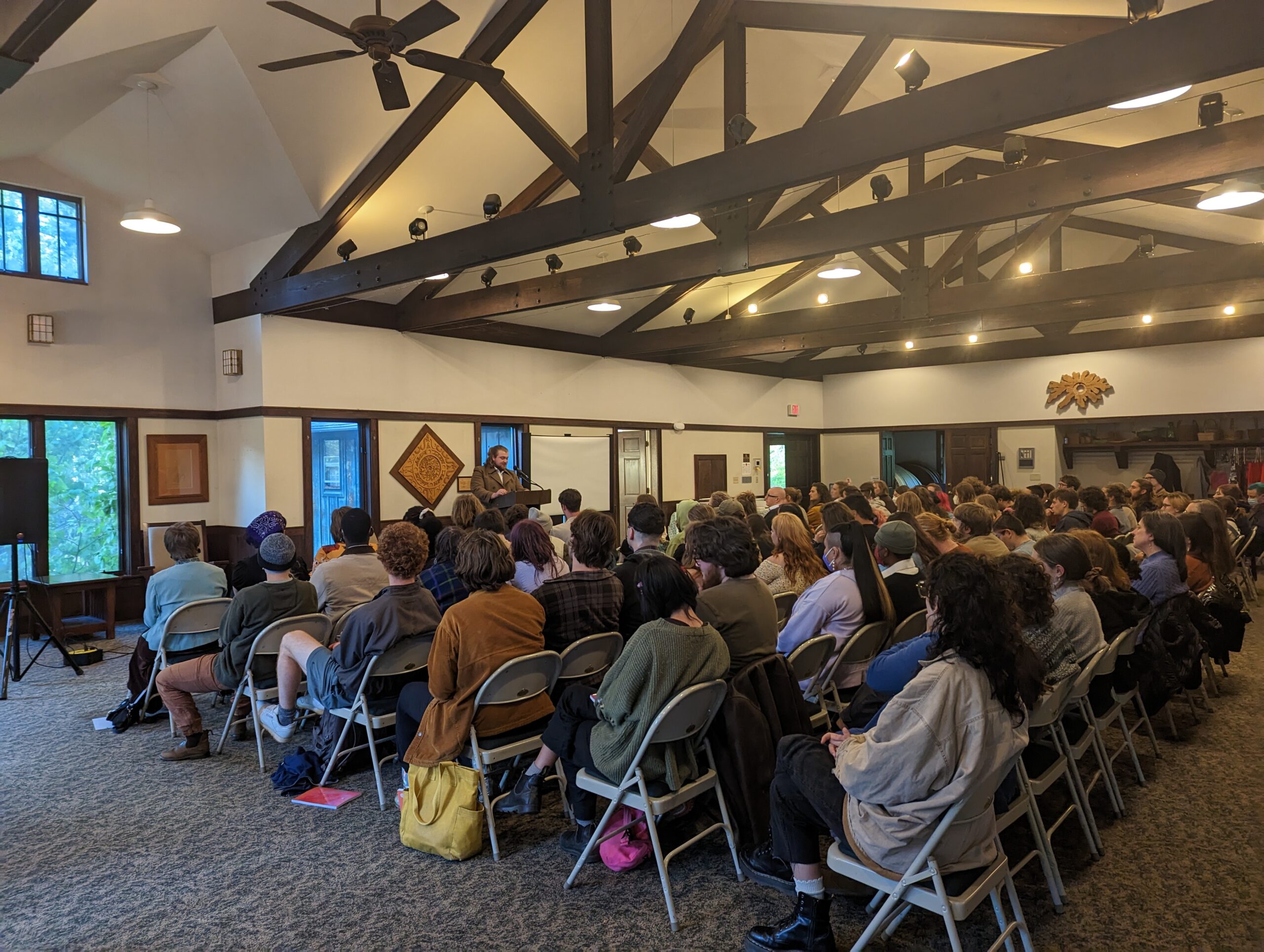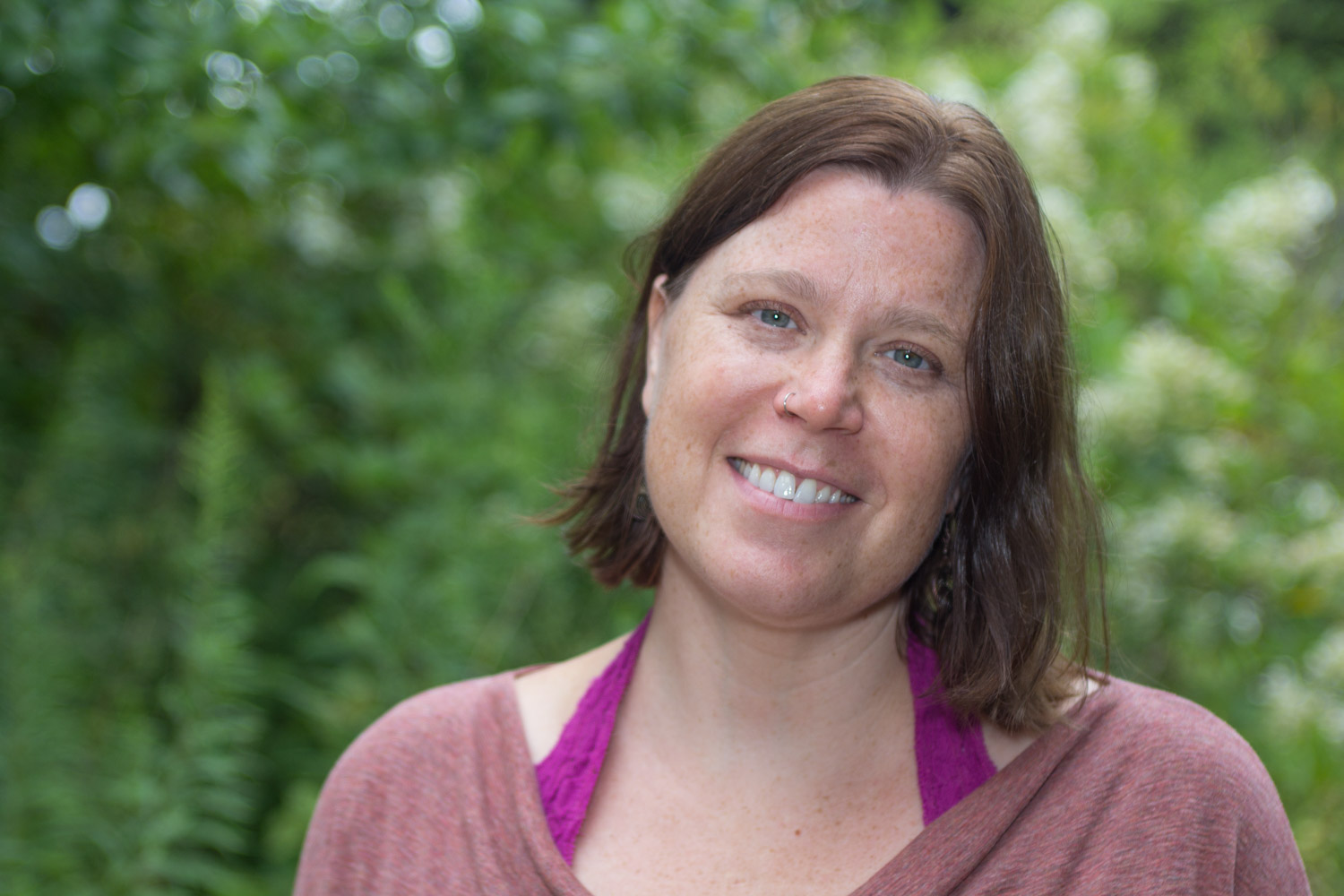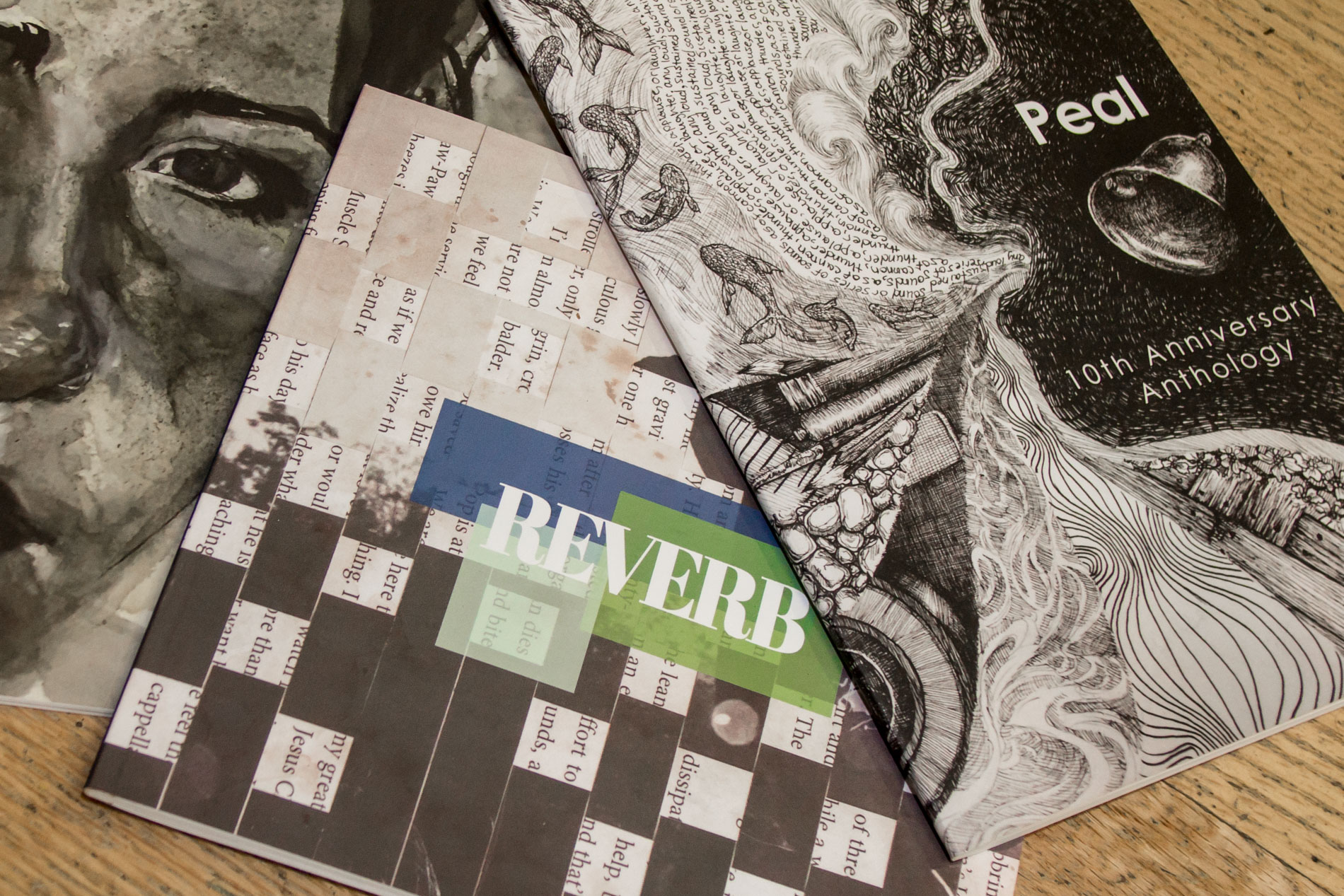Creative Writing
Bachelor of Arts Major & Minor
We all have a voice and a unique set of ideas we want to share. Our Creative Writing program dives deep inside to unlock your ability to craft those stories the world needs to hear. You’ll learn the challenges and techniques involved in creating original work as you refine your personal style. And you’ll practice responding to the work of others, including your classmates and published authors. Writings will focus on three genres: Fiction, Creative Nonfiction, and Poetry.
Literary critique is an essential skill for a professional writer, and a cornerstone of the Warren Wilson program. By learning to give and receive constructive feedback, you’ll get to know the individual styles of your peers and faculty to bring outside perspectives to your own writing.
We’ll also look at a variety of literature to teach you themes, narrative style, rhetorical devices, and cultural context that can enhance your work. Ultimately, you’ll improve your writing and develop techniques, skills, and understanding necessary to be a successful writer.
Why study Creative Writing at Warren Wilson?
- A Close Community of Writers: Each January, a small group of undergraduate creative writing majors have the opportunity to attend WWC’s MFA Program for Writers lectures and readings. The MFA Writer-in-Residence teaches a class, leads a workshop, gives a reading, and holds manuscript conferences with senior creative writing students.
- Popular Events: Our reading series is consistently standing-room-only, and our senior capstone reading generally draws about 150 people. There are plenty of opportunities to share your work, through open mic nights, poetry slams, student readings, literary magazines, newspapers, and journals.
- Unique Courses: We have required courses focusing on revision, research, public-facing art, and play studies. These are unusual and unique for creative writing programs and speak to our seriousness about these concepts.
- Student Made Literary Magazine: Our literary magazine, The Peal, is designed and developed by Creative Writing students. In addition to the magazine, students work on creating a podcast and an app.

Every student will complete community-engaged coursework, an internship, and original research as part of their major
A Sample of Our Partnerships
- Punch Bucket Lit
- Asheville Public Libraries
- Firestorm Books
- Asheville Prison Books
- Asheville Poverty Initiative
- Tranzmission
See how Creative Writing students put our education into action
Community Engaged Course
A recent community-engaged course focused on the contemporary writings of Tupac Shakur. While analyzing the writings, the students worked in partnership with the Asheville Black Cultural Heritage Trail to contribute to their educational experiences which serve to honor and preserve the rich heritage of Asheville’s Black community.
Work
You can work on any crew as a student but many Creative Writing majors choose to be on crews such as:
- Writing Studio
- ECHO (Student Newspaper)
- Communications Crew
- Farm/Garden
- Fiber Arts
Research
For their capstone experiences, Creative Writing majors often pursue extensive research to inform an original piece of writing. Noah Hoyle, for example, studied mythology, copyright, and puppetry for a creative fiction piece. Bella McDonald researched her ancestry for a series including nonfiction essays and poetry. Venus Parkes went down an exciting rabbit hole studying architecture in order to give historical accuracy to their original novel. These projects were showcased at the
Popular Courses
Art in Community
Public programming is crucial to the experience of art. In this course, you’ll find new ways to engage diverse audiences, build community, and create memorable experiences as you plan and execute arts programming. You will end the course with a greater understanding of the many possibilities of public programming and the practical skills needed to engage art audiences in innovative and inspiring ways.
Research in Creative Writing
Students new to creative writing are often not aware of the substantial work many creative writers do to give their work a solid grounding in fact, or to usefully play with or respond to fact. Reading the work of published authors, you will detect the underpinning of research in creative work. You’ll then develop projects in poetry, fiction, or nonfiction that draw upon your previous studies in both creative writing and other fields, seeking a fruitful intersection of these creative genres and other disciplines.
Play and Practice for the Artist
Discover and refine your artistic process. In this course, you will study and practice historic types of play, make art, examine the artistic practices of established artists, and create your own projects. You’ll spend time visiting and exploring your inner life and practice having rich, robust conversations with yourself as you work to resist spending too much time in productivity-mode.
Delicia Daniels, Ph.D.
Research Interests
- National Archives
- Black Literature
- Poetry

“Warren Wilson is an extraordinary institution. I enjoy guiding students with creative energy and passion. ”
Rachel Haley Himmelheber, Ph.D.
Research Interests
- Contemporary American fiction
- Creative writing pedagogy
- Empathy

“Warren Wilson has serious, passionate writing students. It’s rare to find students so invested in creative writing at the undergraduate level, and I love working with them. I’m given a lot of freedom in my teaching here, so I’m able to take classes in directions I couldn’t elsewhere.”
Alysia Sawchyn, MFA
Courses Taught
- WRI 1132: Forms + Theories of Creative Nonfiction
- WRI 3000: Literary Magazine History + Editing
- WRI 3160: Advanced Creative Nonfiction

“We cannot enter the struggle as objects in order to later become subjects.”

“Wilson is where I learned about community and the connections built by caring for each other and helping each other grow. This created a safety net that helped me take a lot of risks, including stepping into my queerness and writing some really weird poems, poems I needed to get out of my system before being able to write what will eventually become my first book.”
Noah Arhm Choi
(they/them)
Senior Equity Program Associate @ NYU Metro Center for Research on Equity and the Transformation of Schools
Major, Minor, Concentration, Crews
- Creative Writing Major
- Anthropology Minor
- Crews: Post Office, Landscaping, Writing Center, RISE

“I did indeed get a spectacular education at Wilson. It was also a very practical education, which continues to astonish and impress folks I meet along life’s path who ask about my college experience. I was surrounded by poets who were also locksmiths, literary scholars who were also electricians, historians who were also trained in HVAC and plumbing.”
Sara Benincasa
(she/her)
Author, Freelance Writer, Digital Marketer
Major, Minor, Concentration, Crews
- Creative Writing Major
- Crews: Maintenance and Writing Center

Will Bahr
(he/him)
Freelance Writer
Major, Minor, Concentration, Crews
- Creative Writing Major
- Music Minor
- Crews: BIO/ENS and Garden
Will is a freelance writer, having recently published an essay in The Atlantic about growing up near the late, great David Lynch as well as a profile in GQ about a pair of Indigenous prayer runners and activists. His latest project is a television series adapted from the podcast “Hammered,” an audio-memoir about the life and times of stoneworker, storyteller, savant and Ashevillian Jill Haynie.

“Warren Wilson taught me to pursue my passions without hesitation. What I especially appreciated about my time there was the college’s unique approach to work: No job was better than another, and every job was important. […] I feel very indebted to Warren Wilson for teaching me how to be an interdisciplinary writer, academic, and worker. I am the person I am because of Warren Wilson, and I am lucky to have an extended network of friends and professors I can rely on to this day.”
Rachel Joan Klein
(she/her)
Contributing Writer for Yokogao and an Education and Family Programs Intern for Japan Society
Major, Minor, Concentration, Crews
- Creative Writing Major
- Crews: Dining, Writing Center, Landscaping
Where Our Graduates Go
- NYU
- City College of New York
- Appalachian State University
- Johns Hopkins
- The Atlantic
- Freelance Reporting
- Teaching
